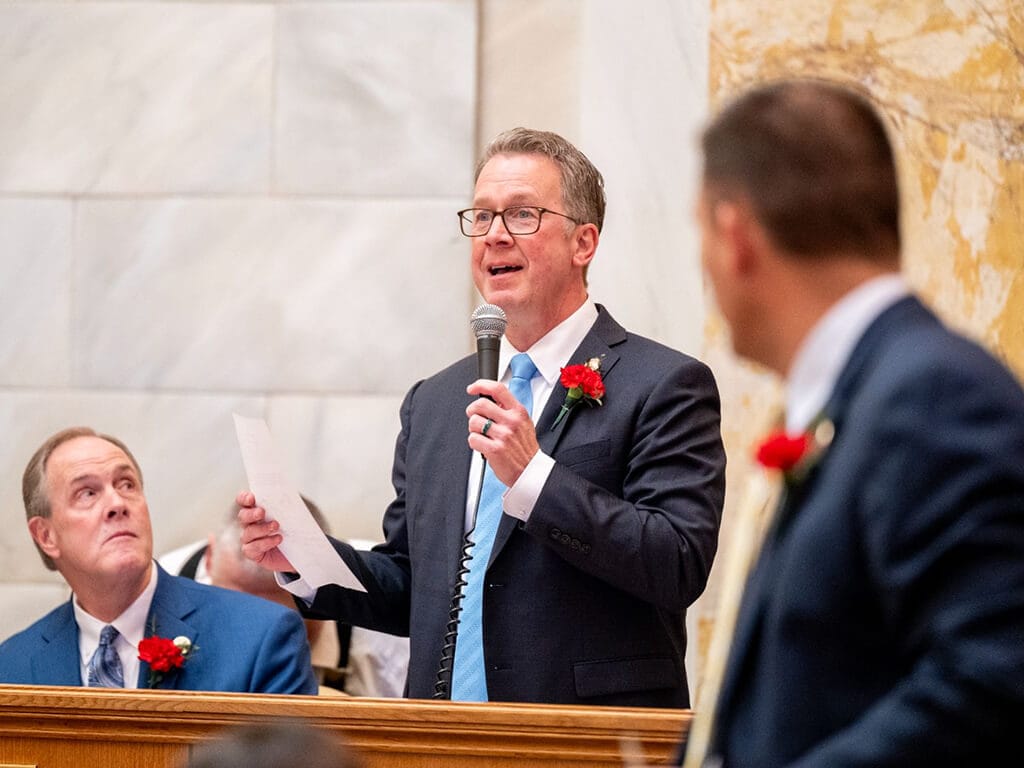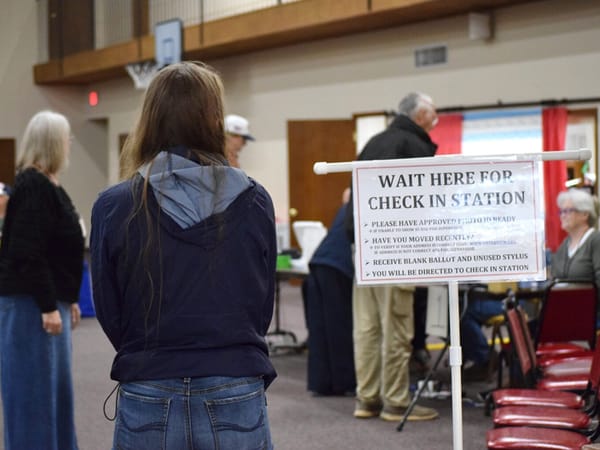Arkansas PBS Selects New CEO With Increased Salary Amid Funding Concerns
Arkansas PBS has selected former legislator Carlton Wing as its new executive director with a $206,000 salary. Netizens question the decision as the network faces financial challenges and declining federal support.

Public broadcasting is under pressure worldwide as competition grows and social media reshapes the media landscape. Many networks also face public backlash over allegations of political bias, declining content quality, and being costly white elephants.
Despite these challenges, public broadcasting continues to be a valued and meaningful resource for many. When financial difficulties arise, loyal supporters often step in, and this has been the case for Arkansas PBS. The statewide network, one of Arkansas’ leading media outlets, has offered a wide range of programs since its launch in 1966. Federal funding cuts under the Trump administration removed a key source of support, prompting the public to increase donations to help sustain the network.
Arkansas residents remain divided over the network’s future. Some mourn the potential loss of what they see as a vital public service and have increased their monthly contributions. Others support the funding cuts, arguing that Arkansas PBS is outdated and should consider shutting down. Critics, including supporters of Trump’s push to reduce government spending, have questioned how the network allocates resources, pointing to staff salaries and programming that often re-airs national and British content.
Amid this financial and public scrutiny, Arkansas PBS has appointed new leadership. The approval of a higher executive director salary has renewed attention on how the network manages its funds during a period of tight budgets.
New Leadership at Arkansas PBS
On September 26, the Arkansas Educational Television Commission approved Carlton Wing, a former Republican state representative, as the new executive director and CEO of Arkansas PBS. He will succeed Courtney Pledger, who resigned in May after eight years in the role. During the interim period, Education Director Sajni Kumpuris served as acting leader.
“Carlton Wing brings a unique blend of public service, media innovation, and leadership experience to Arkansas PBS,” said Woody Freeman, acting chair of the commission, in a news release. “His proven ability to connect with communities across Arkansas makes him the right leader to guide Arkansas PBS into its next chapter.”
Wing has served in the Arkansas House of Representatives since 2017 and most recently as Speaker Pro Tempore of the 95th General Assembly. He will resign from his legislative role to take on the full-time position, triggering a special election to fill his seat through 2027. He had already announced in June that he would not run for reelection to a sixth term.
Beyond politics, Wing brings extensive media experience. Since 2008, he has owned the Wing Media Group, which produces lifestyle content focused on outdoor activities such as fishing and hunting. His career also includes serving as general manager of programming for the Dempsey Film Group and working as a sports anchor and director for television stations in Little Rock, Spokane, and Salt Lake City.
“I am honored to join Arkansas PBS at such a pivotal time,” Wing said. “This agency has a nearly 60-year history of educating, informing, and inspiring Arkansans, and I look forward to building on that legacy with new opportunities to engage and serve our state.”
Salary Decision Draws Scrutiny
Although Wing brings decades of experience in broadcasting, media, and public service, the most controversial aspect of his appointment is his salary. On Friday, the Arkansas Educational Television Commission approved a salary of $206,000 for Wing, at least $16,000 higher than Pledger’s annual pay. This is a significant amount for a network facing financial strain.
Freeman explained that the state allows a salary range of $155,000 to $211,000 for the executive director position. Arkansas PBS had budgeted $211,000, and Freeman recommended $206,000 based on Wing’s business background, extensive media experience, and his reputation as a respected legislator. He added that Wing’s pay, despite controversy, remains lower than similar positions in neighboring states.
Kumpuris told commissioners that Pledger’s salary had been over $190,000, though she could not recall the exact figure. She also clarified that Wing will not be eligible for a merit increase next June because his hire date fell after the July 1 deadline for this cycle. Arkansas lawmakers approved merit pay raises in June 2024 for nearly 500 state employees, including Pledger, whose salary was expected to rise from $179,999.87 to $190,961.86, according to the Arkansas Democrat-Gazette.
Many Arkansans Question Executive Pay
The decision to award a six-figure salary has sparked criticism from many Arkansans, who view it as tone-deaf. Numerous residents argue that granting over 200,000 dollars in salary during a period of financial challenges undermines public trust.
One concerned donor commented on the announcement, saying they had tripled their modest monthly contribution to AR PBS earlier this year after federal funding was cut. They noted their appreciation for programs such as British shows and Finding Your Roots, but now wonder how much of their donations will go toward Wing’s salary and benefits. They added that, at a time when ordinary people must tighten their belts, the decision feels wrong and that Wing will need to work hard for the compensation.
Critics note that as PBS works to fill budget gaps left by federal cuts and depends heavily on donations from small businesses and charities, the perception of an increased salary is particularly troubling and could affect public contributions.
Looking Ahead
Arkansas PBS faces a difficult path ahead. While Wing brings strong leadership experience, his increased salary amid shrinking resources and limited growth prospects raises questions about the station’s long-term sustainability. Critics also contend that programming focused largely on re-airing national and British content does not justify such a high salary.
The situation underscores a broader debate over whether public broadcasting in Arkansas can adapt, remain relevant, and maintain the trust of both donors and the public.





